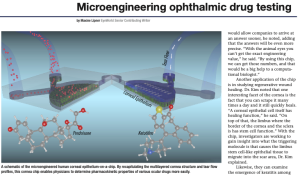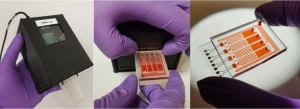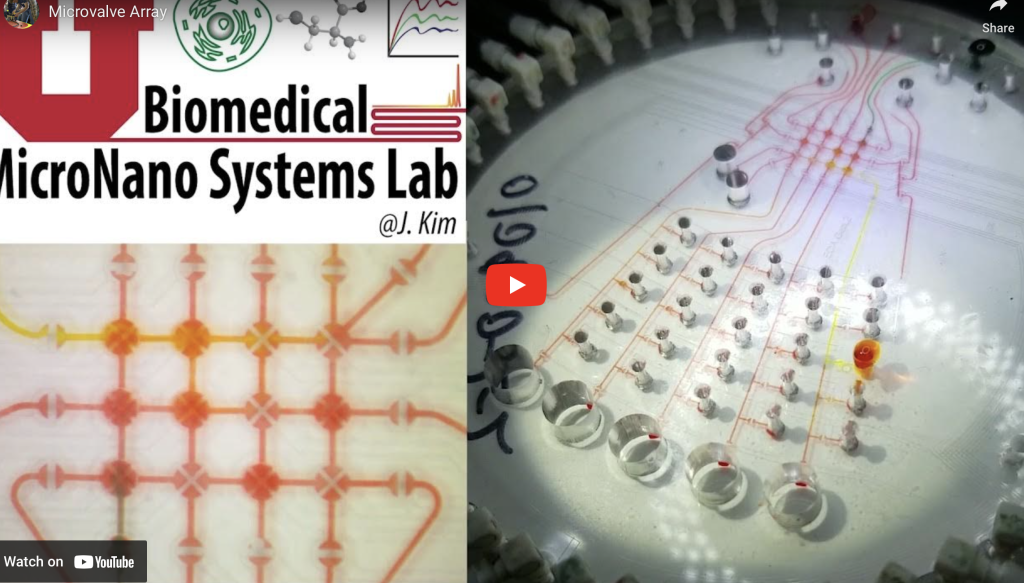Microsystems for Space Exploration
This microfluidic technique enables inexpensive, low-powered and portable instruments for biological and chemical detection. In order to develop an autonomous, miniaturized bio-analytical platform, a microfluidic sample processor with sufficient programmability for a wide range of sample processing operations is essential. Using both pneumatic actuations, digital microfluidics, and paper-based microfluidics, we are developing an automated, miniaturized and programmable microfluidic platform which can be used for searching life beyond Earth.
Collaborators: Space Science Lab at UC Berkeley, Georgia Tech
Organ chips
Both disease mechanism studies and drug tests generally require whole animals or freshly dissected body parts. Such experiments are costly, and can raise ethical issues. In vitro microphysiological biosystems could reduce these issues and provide alternative models. The systems are particularly well-suited for multi-variable bioassays, offering systematic control of all experimental variables. In addition, the biomimetic system can be replicated to create a high-throughput experimental platform for hundreds of experiments simultaneously. With these advantages, the biomimetic system reduces discovery time and the consumption of expensive reagents and cells, and allows the integration of detection assays directly in the microsystems.
Collaborators: Texas Tech, Moran Eye Center, Cardiovascular Dept. at the U

Integrated Microsystems for Biological and Chemical Sensing
Current molecular diagnostic devices require intensive sample preparation and complicated sensing systems. Our lab actively seeks new type of biomedical tools to measure real-time monitoring of an individual`s health status from liquid biopsy using capillary driven flow and optical and electrical biosensors. With this research effort, we are contributing digital health field to realize diagnostic tests without a laboratory.
Collaborators: Chungbuk National University




